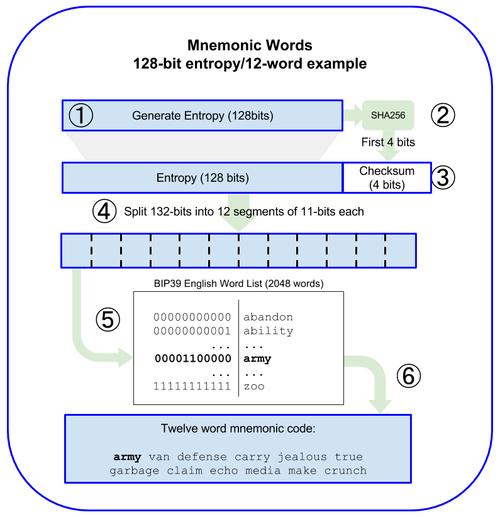Understanding Bitcoin 32bit Entropy
Bitcoin's 32bit entropy refers to the entropy generated for creating Bitcoin wallets or private keys. Entropy is crucial in cryptographic systems as it ensures randomness, making it extremely difficult for adversaries to predict or bruteforce keys.
What is Entropy?
Entropy, in the context of Bitcoin, is a measure of randomness or unpredictability in generating private keys. It's essential because the security of Bitcoin wallets relies on the secrecy and unpredictability of these keys. If a key can be guessed or generated through a predictable algorithm, the funds in the corresponding wallet are at risk.
Importance of Entropy in Bitcoin Wallets
Bitcoin wallets typically use either random or pseudorandom numbers to generate private keys. True randomness is preferred because it ensures that the keys are truly unpredictable. However, true randomness is challenging to achieve in computer systems, which rely on algorithms and deterministic processes.
32bit Entropy
A 32bit entropy refers to the length of the random or pseudorandom number used in generating Bitcoin private keys. In cryptographic terms, a 32bit key means there are \(2^{32}\) possible combinations, which equals roughly 4.3 billion possibilities. While this may sound like a large number, it's important to understand that modern computing power can quickly iterate through all these possibilities, making keys generated with only 32 bits of entropy highly vulnerable to bruteforce attacks.

Security Implications
Keys generated with only 32 bits of entropy are highly insecure by today's standards. Attackers can feasibly generate all possible combinations in a relatively short amount of time using readily available computing power. As a result, wallets generated with such low entropy are at high risk of being compromised and funds stolen.
Best Practices for Bitcoin Wallets
1.
Use High Entropy
: Always use cryptographic libraries or tools that generate keys with high entropy, preferably 128 bits or more. This ensures a vast number of possible combinations, making bruteforce attacks practically infeasible.2.
Hardware Wallets
: Consider using hardware wallets, which generate keys in a secure environment and offer additional layers of protection against various attacks, including those targeting lowentropy keys.3.
Trustworthy Sources
: Ensure that the software or service used for generating wallets or keys is from a reputable and trustworthy source. Avoid using unverified tools or software, as they may not adhere to best practices for key generation.4.
Regular Backups
: Regardless of the entropy used, always maintain regular backups of your wallet. This ensures that even if your keys are compromised or lost, you can recover your funds using the backup.Conclusion
In conclusion, 32bit entropy is insufficient for ensuring the security of Bitcoin wallets. It's crucial to use cryptographic methods that provide high entropy to generate private keys, thereby mitigating the risk of unauthorized access and theft of funds. By following best practices and using reputable tools, users can enhance the security of their Bitcoin holdings and protect against potential threats.
版权声明
本文仅代表作者观点,不代表百度立场。
本文系作者授权百度百家发表,未经许可,不得转载。














评论